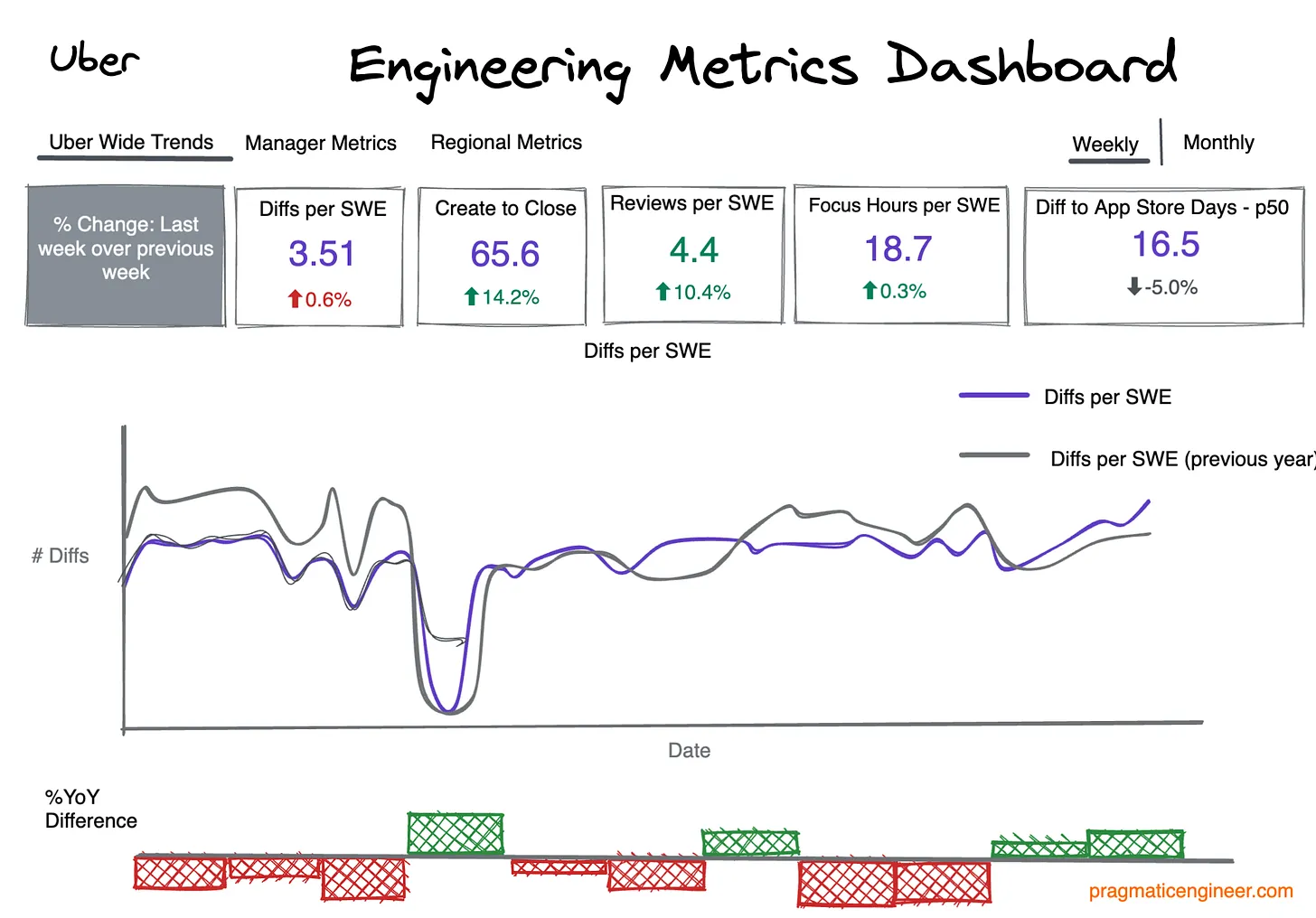Software Engineering Productivity Measure
Jump to navigation
Jump to search
A Software Engineering Productivity Measure is a software engineering measure that is a engineering productivity measure.
References
2022
- "How Uber is Measuring Engineering Productivity."
- QUOTE: On Thursday, 4 August, Uber held an All-Hands meeting. Presenting at the event was Uber’s CEO, Dara Khosrowshahi. During the meeting, Dara showcased a new tool for all of engineering: the Eng Metrics Dashboard. It’s a dashboard which shows pull review metrics – which Uber calls ‘diffs’ – code review metrics and focus time stats. This is what it looks like at first glance:
- QUOTE: On Thursday, 4 August, Uber held an All-Hands meeting. Presenting at the event was Uber’s CEO, Dara Khosrowshahi. During the meeting, Dara showcased a new tool for all of engineering: the Eng Metrics Dashboard. It’s a dashboard which shows pull review metrics – which Uber calls ‘diffs’ – code review metrics and focus time stats. This is what it looks like at first glance:
2021
- "Engineering Productivity : Delivering frictionless engineering and excellent products."
- QUOTE: What is Engineering Productivity? We are a data-driven engineering discipline focused on optimizing the engineering process so that Google can deliver amazing experiences to our users, faster.
2010
- "A summary measurement of engineering productivity at the project level." Project Management Institute.
- ABSTRACT: Since 2002, the Construction Industry Institute (CII) has been working to develop a standardized engineering productivity metric system (EPMS) for benchmarking purposes. In this system, engineering productivity is defined as a ratio of direct engineering work hours to the engineering outputs, as measured by issued for construction (IFC) quantities. The EPMS consists of six major engineering disciplines with a number of underlying metrics. Engineering productivity can be accordingly benchmarked at any of these levels; however, there is a lack of project-level engineering productivity. The challenge is that IFC quantities are measured with different units and thus are difficult to advance to the project level. To overcome this barrier, this study examines three approaches for aggregating engineering productivity metrics to the project level, based on 112 heavy industrial projects. The selected project level engineering productivity measurement best summarizes the underlying engineering productivity metrics and provides a macro view of engineering performance; it allows owners and engineering organizations to benchmark engineering productivity at the project level and also lays the foundation for future engineering productivity analysis and research.
